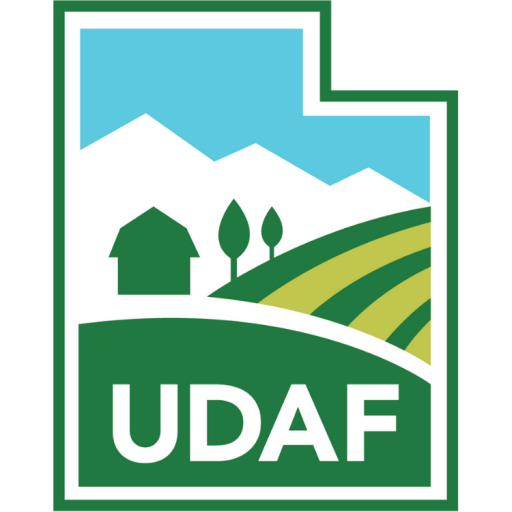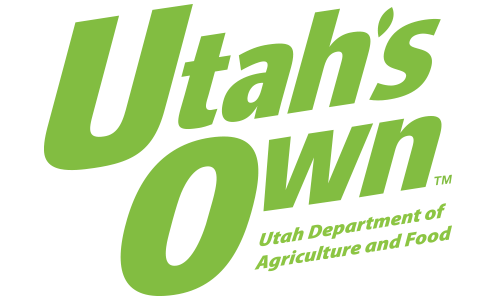New: Notice of New Fees Memo – August 2021
The primary focus of the Weights and Measures program is to ensure that equity prevails in the marketplace and that commodities bought or sold are accurately weighed or measured and properly identified.
All weighing or measuring devices used in a commercial application are subject to inspection to ensure their accuracy. This includes the weight or measure of foods, non-food products, services, scanners, or commodities purchased in the State of Utah. We also respond to numerous consumer complaints dealing with violations of the weights and measures laws.
Most items purchased each day are sold by weight, measure, or count. Inspection of weighing and measuring devices for correctness and accuracy helps to protect both consumers and retailers from unfair business practices.
Registration and Applications
- Weights & Measures Establishment Registration
- Weights & Measures Registered Service Person Application
- Scales Used for Commerce in Utah
- Look Up Registered Service Persons (Scroll to bottom of page and click on the '2301' button)
Utah Metrology Lab
Click here for information on the Utah Metrology Lab.
Types of Devices Tested
Large Capacity Scales (1000 lbs. or greater)
These devices include scales used for weighing livestock, coal, gravel, vehicles, and similar items; inspections are conducted at auction yards, ranches, ports of entry, mine sites, construction sites, gravel pits and railroad yards.
Small Capacity Scales (up to 999 lbs.)
Scales are inspected to ensure that they are accurate for the services in which they are used, that they are installed properly, and positioned so that customers can see the display.
Motor Fuel
Test all gasoline pumps for accurate measurement, storage tanks for water, test fuel for quality (octane).
- Document: Ethanol Blended Gasoline Facts for Retailers & Consumers
- Video: Watch an inspector perform a gasoline pump test
Package Inspection
All packages, cans, bottles, and containers that have a weight, measure, or count declaration are subject to inspection. Routine verification of the net contents of packages is done to facilitate value comparison and fair competition. Inspections are done at point-of-pack locations, storage warehouses, retail stores, and wholesale outlets.
Price Verification (Check out register)
All businesses that use a check-out register used at the final point of sale as a means for pricing for commercial sales are subject to inspection. Testing is done by randomly selecting items, recording the display price, then verifying the posted price matches the price charged at the checkout register. A passing score is 98% or above, meaning that only one of each 50 items selected is allowed to be incorrect.
Check-out Register Definition
Rule R70-960. Weights and Measures Fee Registration. R70-960-2. Definitions of Terms.
F. Check-out register means any device that is commercially used in a price verification system at a check-out register. Included are those devices that use Universal Product Code (U.P.C.) scanners, Electronic Product Code (E. P. C.) readers, manual entries, or any current or future use of any device that could be used at the final point of sale as a means for pricing for commercial sales.
Large Capacity Petroleum and Water Meters
Inspections are conducted on airport fuel trucks, all fuel delivery trucks, cement batch plant water meters, asphalt plant meters, and other large meters.
Propane (LPG)
All propane delivery trucks, and all retail dispensers at service stations are subject to inspection.
Utah Code and Administrative Rules Relating to Weights and Measures
- Weights and Measures (Utah Code Annotated: Title 4, Chapter 9)
- Motor Fuel Inspection Act (Utah Code Annotated: Title 4, Chapter 33)
- Compliance Procedures (R70-201)
- Registration of Servicemen for Commercial Weighing and Measuring Devices (R70-910)
- Packaging and Labeling of Commodities (R70-920)
- Method of Sale of Commodities (R70-930)
- Standards and Testing of Motor Fuel (R70-940)
- Uniform National Type Evaluation (R70-950)
- Weights and Measures Fee Registration (R70-960)
Fees
Your registration fee will be determined by the total number of devices in service
______ X ($50.00) Fuel Meter Consoles
______ X ($50.00) Small Scales: 0 lbs to 999 lbs
______ X ($25.00) Checkouts/Registers
______ X ($200.00) Large Scales: 1,000 lbs and greater
______ X ($50.00) Meters: LPG, CNG, LNG, Vehicle Tank, Rack
| Scale Inspections | |
|---|---|
| Per man-hour | $25.00 |
| Per mile | $1.00 |
| Per hour equipment use | $25.00 |
| Petroleum Fees | |
|---|---|
| Gasoline | |
| Diesel | |
| Services per hour | $50.00 |
| Metrology Lab Fees | |
|---|---|
| Volume | |
| Mass | |
| Services per hour | $50.00 |
| Citation Fees | |
|---|---|
| Maximum per violation | $5000.00 |





